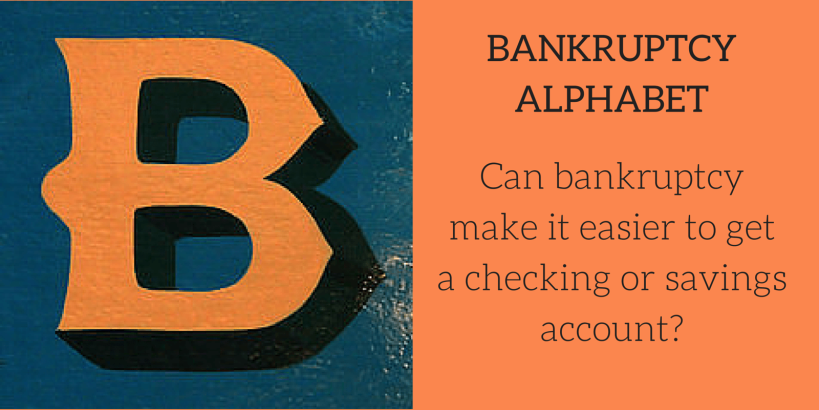For most people, bank accounts are where we keep our money. Paychecks, Social Security, disability payments and other income goes into bank accounts. Checks are drawn, savings amassed, and retirements funded. But for 1 in 13 Americans, a bank account is a luxury reserved for someone else.
There people are called the unbanked, an industry term referring to individuals and households without bank account. In 2009 the Federal Deposit Insurance Corporation reported that 7.7% of American households were unbanked. The reason was simple – these people just didn’t have enough money to need an account.
Sure, 12.4% of the unbanked claimed that they didn’t need or want an account, or saw no value in having an account. But the lion’s share didn’t have the money. They walk around with cash in their pockets or under the mattress.
In a study done of people in Los Angeles, fewer than half of the unbanked households completed high school.
In my practice, a good chunk of my bankruptcy clients come to see me when they are unbanked. These bankruptcy clients live on cash only, and often have nothing beyond a few dollars in their pockets. Paychecks mean check cashing stores and money orders, spending money on the income and expense side.
When spending money, spare change and small bills get lost. A dollar here, a quarter there – it all adds up.
I’ve often wondering if many of these people would even need to file for bankruptcy if they had an account. Would they all need the protection that bankruptcy offers if they could save their dollars and quarters rather than letting their go through a hole in their pants pockets?
Or would bankruptcy be unnecessary?
Can we make the claim that the lack of a bank account is a factor in bankruptcy filings? Or is it the other way around?
One thing’s for sure – if you’ve got a bank account then you’ve got a place to keep your money. And if that’s the case then there’s less likelihood that you’re spending money on money orders or Western Union payments each month.
Simply put, a bank account allows you to have a tidier financial life.
Lots of people who file for bankruptcy do so because they’re worried that creditors will leap in and take their hard-earned money. Others are so busy spending their last dime on minimum payments there’s nothing left to keep in a bank.
For both groups, filing for bankruptcy will make it easier and more realistic to have a bank account. A place to keep money, to save and to hang onto if only for a little while. There’s a sense of freedom in being able to write a check or dip a debit card into a slot without having to spend your hard-earned dollars on a money order. And with freedom comes stability.
When you’re behind the financial 8-ball the loss of even a few dollars can mean the difference between making the rent and being hauled into landlord-tenant court. The convenience of having a bank account may put you on the better side of the fence.
Image credit: Leo Reynolds
